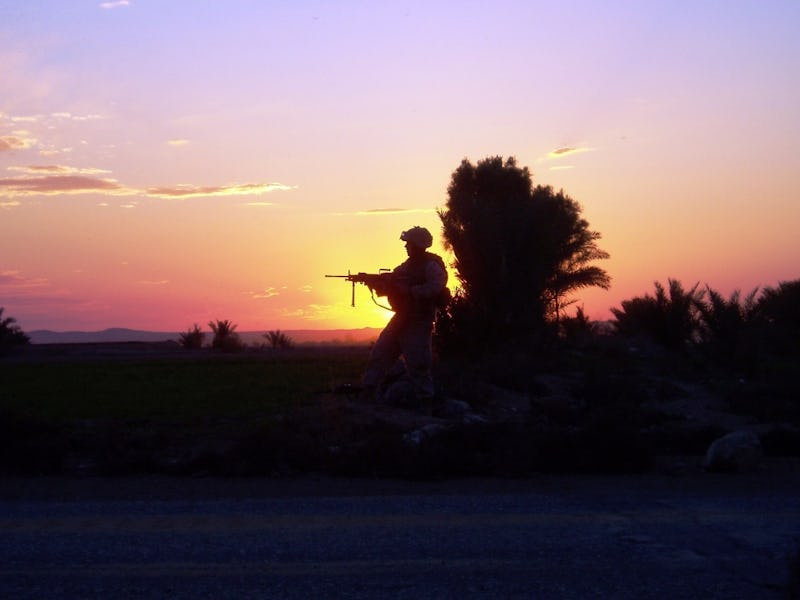Conflict in the Middle East Has Reduced Greenhouse Gases There Since 2010
When chaos halts the burning of fossil fuels.

In a literal fashion, at least, the air is clearing in the Middle East. In the troposphere there, levels of the greenhouse gas nitrogen dioxide fell after 2010, according to a new study in the journal Science Advances. Climate experts and chemists from Germany, Cyprus, and Saudi Arabia tracked the air pollutant’s density from orbit — there’s no good method on the ground — and make the case that the decline correlates with conflict.
ISIS’s mayhem and conflicts in Syria and Egypt do not, in themselves, improve air quality. Rather, the authors argue, when cities clear out and industry stops, fewer people burn fossil fuels. Take, for instance, Iraq. As the researchers write:
The invasion of Iraq in 2003 has caused dramatic changes in the country. However, since 2005, the GDP has increased again by 6 to 7%/year, accompanied by energy consumption and CO2 emission increases of 4 to 5%/year. NO2 over Baghdad increased more than 10%/year until 2011, after which a decline started at nearly the same rate. This change was accompanied by a particularly rapid GDP increase in 2010 and 2011, after which it dropped by more than half. In Karbala, south of Baghdad, NO2 increased more gradually by about 10%/year between 2005 and 2014 … overall, NO2 increased substantially in Iraq, especially in Baghdad and the urban areas to the south, and in the north and northeast where the cities of Mosul and Kirkuk are located (see fig. S2 for the period 2005–2014). Since 2013, however, in Baghdad and central Iraq, NO2 has decreased substantially, for example, including the cities Tikrit and Samarra that have been occupied by the so-called Islamic State. The armed conflict in this area has left marks, including a decrease in NOx emissions.
The authors acknowledge cleaner air is little solace to people at the center of the conflicts. According to Nature Asia, study author Jos Lelieveld of the Max Planck Institute for Chemistry said in a press conference that, “I don’t want to create the illusion that air pollution measurements [taken] from space will help people in areas like Iraq and Syria. It’s a simple diagnostic of what is going on, which is possibly helpful because in many cases when policies are implemented and emissions are estimated, you can improve emissions [based on these numbers].”
This isn’t the only instance where unexpected environmental improvement is a symptom of tragedy. The Korean demilitarized zone, a heavily patrolled no-man’s-land, is a hotbed of biodiversity. Though land mines remain a threat to species like wild boar, the stretch of green across the peninsula is home to rare red-crowned cranes, leopards, and water deer.